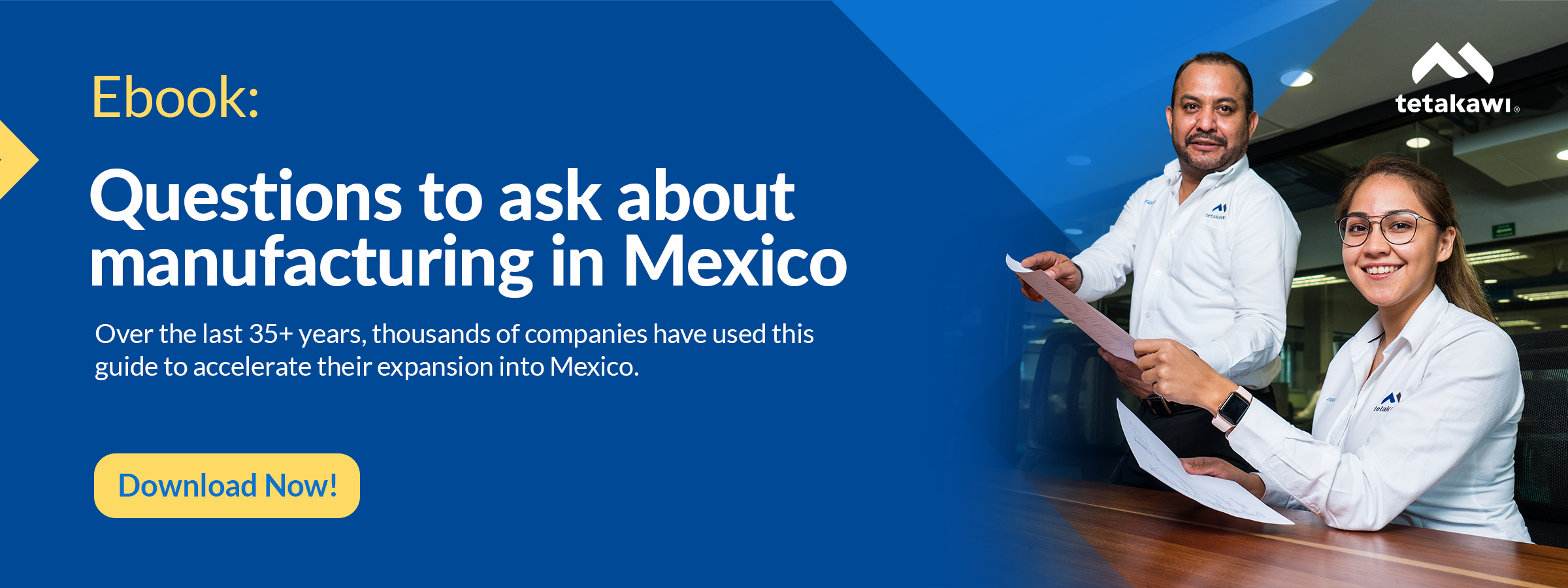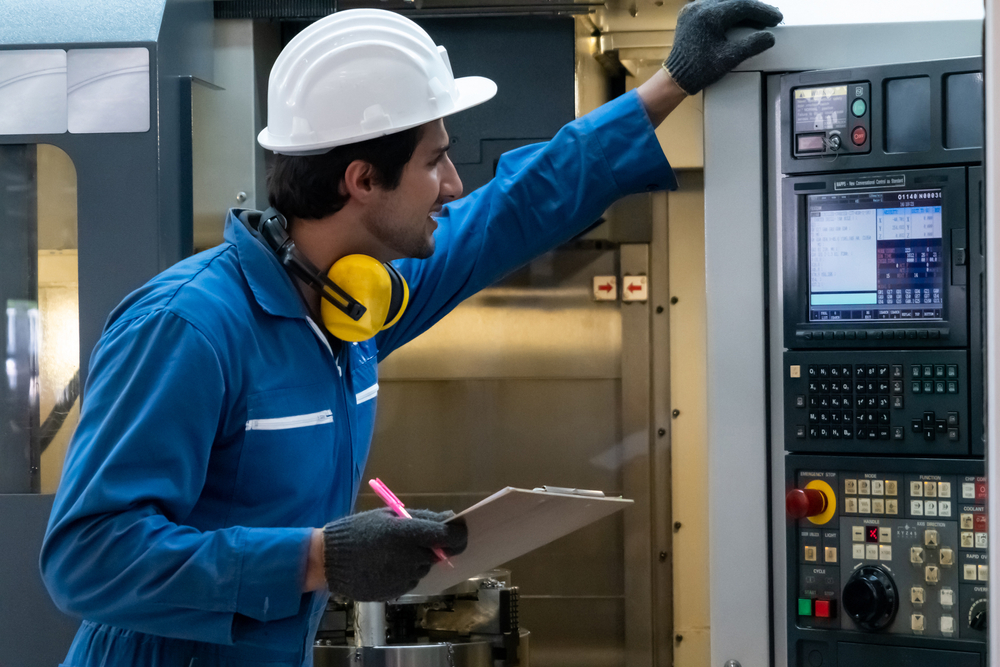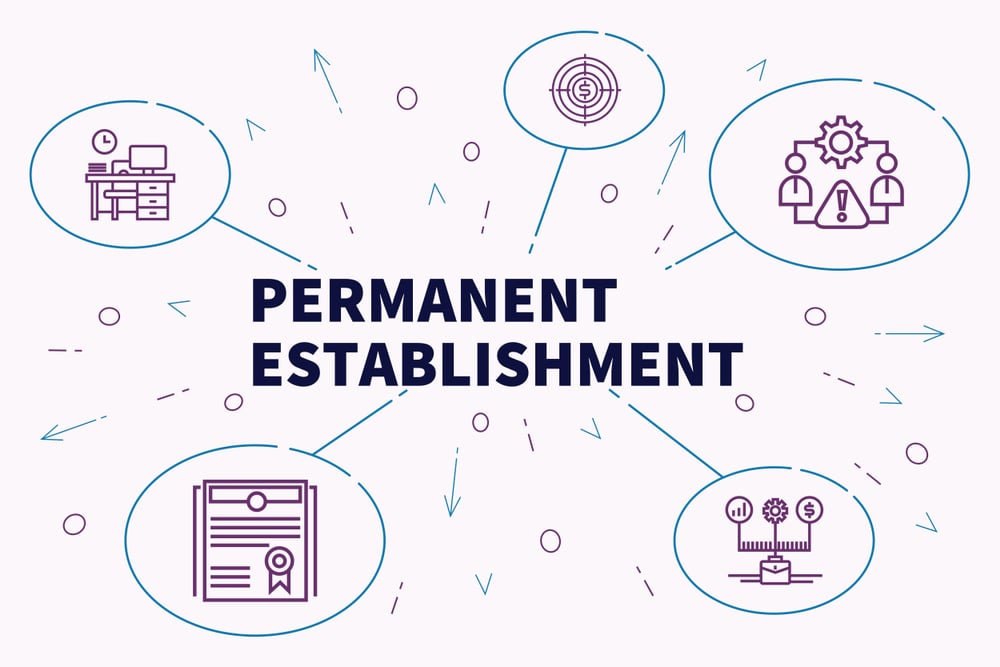Manufacturers must be detail oriented to secure value-added tax (VAT) refunds in Mexico
Anyone visiting or doing business in Mexico will quickly run into the IVA tax. IVA is the Spanish acronym for value-added tax (or, in Spanish, Impuesto al Valor Agregado). Value-added tax is levied on imported materials and distributed goods and at the point of sale. Services also carry this tax. In Mexico, the IVA is 16% through most of the country, but 8% in more than 40 local districts near the U.S. border, through the states of Baja California, Sonora, Chihuahua, Coahuila, Nuevo Leon, and Tamaulipas. That lower sales tax has also been extended to 22 districts along Mexico’s southern border with Guatemala and Belize.
However, one of the prime benefits of manufacturing in Mexico relates to the potential for tax incentives that support foreign investors.
Tax incentives for foreign investors play a pivotal role in Mexico's economic landscape, particularly in the manufacturing sector. These incentives are designed to attract foreign capital and stimulate investment in the country. With Mexico's strategic location, skilled labor force, and robust industrial infrastructure, tax incentives serve as a compelling incentive for foreign investors looking to establish or expand their operations in the country.
By offering benefits such as reduced tax rates, tax holidays, or exemptions on specific types of income or activities, Mexico aims to create a favorable environment for foreign investment. These incentives not only contribute to the growth of individual businesses but also foster economic development and job creation, benefiting both investors and the local community alike.
VAT Tax Rules in Mexico
Most goods sold or services rendered in Mexico carry a sales tax within the total cost, regardless of whether the business is done in person, online, or over the telephone. According to the IVA, VAT is due to the supply of goods, provisions of independent services, imports of goods or services, and temporary use or enjoyment of goods (leasing) carried out in Mexican territory.
When it comes to imports and exports, however, the rules for IVA tax in Mexico are somewhat different. There is no VAT tax levied on goods exported from Mexico to other countries. What's more, manufacturers can recover the IVA levied on certain imported materials through a tax refund process.
On imports, the IVA is calculated based on the price the material had when it left the foreign plant from which it originated, in addition to any freight charges, insurance, or duties incurred along its journey. The tax is levied on a cash basis at the time the goods cross the border.
The most notable exception to the standard IVA rules is in regard to temporary imports. Through VAT and IEPS certifications, manufacturers are not required to pay IVA on any goods or materials imported into Mexico for processing, assembly, or finishing of goods that will subsequently be exported.
2020 Changes in Mexico VAT Refund
In July 2020, an amendment to Mexico’s customs regulations introduced substantial changes to the Mexican VAT, reducing certain VAT benefits for all but Authorized Economic Operators (OEA).
Some significant revisions to the Mexico VAT include:
- The introduction of the Authorized Economic Operator (AEO) certification
- The reduction of time that temporarily imported goods could remain in the country
- The elimination of the accelerated refund process for VAT certification holders
To experience many of the benefits of the previous VAT certification exemption regime, manufacturers must hold an OEA certification. OEA-certified companies, which through their registration establish that they already meet specific Mexican Customs standards, are able to secure a broader range of tax incentives compared to VAT-certified companies. For example, the recent changes to tax rates cut down the amount of time temporarily imported goods could stay in the country to eighteen months for everyone except OEA certification holders, who can extend the Mexico VAT tax timeline to up to thirty-six months (which was the norm in the old regime).
There are some stipulations, however, for getting the full benefit of this VAT tax incentive. A 2020 revision to Foreign Trade Rules reduced certain VAT benefits for all but Authorized Economic Operators (OEA). OEA-certified companies, which through their registration, establish that they already meet specific Customs standards, are able to secure a broader range of tax incentives compared to VAT-certified companies.
This reform also impacts how quickly your value-added tax reimbursement is processed and refunded. Under recent industry changes, refund processing might take beyond 40 days, although tax reform has been proposed to speed up the turnaround time for these tax rebates.
The IVA Rebate Process in Mexico
To start the process of securing your tax refund, companies must first secure a Mexican taxpayer identification number (TIN) through the Federal Taxpayer Registry (Registro Federal de Contribuyentes, or RFC). Individuals in Mexico often carry a small, plastic-card containing the number and the individual's or corporation's name, and address, and other information. Before making a transaction for which you're planning to request a tax refund, be sure to present your TIN to the sales associate.
The sales vendor should then provide you with an official receipt, known as a "factura" or digital tax receipt (CFDI). This is not the same as a standard simple receipt, and the Mexican tax authorities will not accept a document beyond a factura. The factura features the vendor's official tax seal, which includes their RFC number and contact information, a description of what goods or services were purchased, and the taxes included in the sale, in addition to other indirect tax services requirements such as the form of payment and the specification when the purchase is made on credit or in cash.
In addition, taxation authorities will require the legal entity's name and information to be on all facturas. Do not use a nickname, DBA name, or other entity name when securing this tax document. Save these receipts to submit to the Finance Ministry (Secretaria de Hacienda) on a monthly basis for the processing of the rebate.
The vouchers must be issued electronically, as they are certified by a third-party authorized by the Ministry of Finance to authenticate their validity. These vouchers must be electronically safeguarded and recorded in the accounting books of the company requesting the balance in favor of VAT.
The process of securing this factura may mean taking a bit extra time during routine business activities to secure the necessary documentation, but it's worth securing and sharing with the Mexican Finance Ministry it. However, it's important to pay attention to information details as you work through this process. An error may not cost you the rebate, but it could significantly delay your receipt of this tax refund.
Is it Possible to Issue Mexican VAT Invoices Electronically?
It’s possible to issue invoices electronically in Mexico. Since 2014, all taxpayers earning more than 250,000 Mexican pesos a year must use the Comprobante Fiscal Digital (CFD), or the country’s digital tax invoice scheme, to issue electronic invoices. An electronic invoice (CFDI) requires an advanced electronic signature, processing a digital seal certificate, and using the free service invoice offered by the Tax Administration Service or choosing from any of the authorized certified providers (someone authorized by the TAS to validate CFDIs) found in the portal of the tax authority or indirect tax guide.
Currently, a CFDI has to be issued for all tax operations carried out, including income, expenses, withholding, and payroll. Businesses must also comply with certain record-keeping requirements for Mexican and global indirect tax standards. The general rule is to keep records and invoices for five years as of the date when they should have been filed for taxes, and these must be stored in the tax domicile of the taxpayer in Mexico (i.e., not abroad). The records must also be kept electronically according to what’s established by tax authorities.
It is becoming increasingly complex to process a VAT refund balance as the requirements to justify the tax refund to the financial authorities continue to increase. However, if your purchases are essential for the operation carried out by the company—such as ensuring compliance with Mexican regulatory requirements—then it is important you secure that digital tax receipt. You must support your tax claim by presenting it along with proof of operations, as well as contracts or information documents from the suppliers themselves to validate their legality. Examples include the presentation of accounting records and proof of payment of the invoices in question or pediments for foreign trade operations.
A shelter provider for maquiladoras can offer clients an added layer of vigilance in working with suppliers and ensuring they are in order with their tax obligations and in the issuance of CFDI. A shelter provider can also help you keep up to date on any relevant changes in the tax laws or management contacts with the authorities in Mexico. This support helps to ensure the timely presentation of all tax documentation, as well as the prompt recovery of requested refunds to prevent cash flow issues.
Simplify Your IVA Refund
Any manufacturer operating in Mexico should hold a basic understanding of the Mexican tax system. While this is more critical for manufacturers operating in Mexico as a wholly-owned foreign subsidiary, companies operating under the umbrella of a shelter service provider should also understand these tax requirements. Not only does this understanding ensure all corporate employees secure appropriate documentation during business-related transactions, but it also provides an excellent sense of the complete cost-saving benefits available through manufacturing in Mexico.
Special Indirect Tax Rules
Among special indirect tax rules in Mexico is that the tax point of the transactions for VAT purposes is based on a cash basis system find (i.e., output VAT accrual when the payment of accounts receivable is received from clients and input VAT can be deducted once the payment of accounts payable is made to suppliers). There are also no indirect tax incentives, such as reduced rates or tax holidays, available in Mexico.
Fortunately, securing Mexican IVA rebates does not have to be complicated. Tetakawi helps clients navigate the paperwork necessary to secure these tax rebates on imports and other critical purchases. Working with an experienced partner in managing processes for Mexican Customs can save your company time and money in the long run. To learn how you can benefit from more efficient support of your IVA refund in Mexico, contact Tetakawi today.
Subscribe
Sign up and stay informed with tips, updates, and best practices for manufacturing in Mexico.
Table of Contents:
- Manufacturers must be detail oriented to secure value-added tax (VAT) refunds in Mexico
- VAT Tax Rules in Mexico
- 2020 Changes in Mexico VAT Refund
- The IVA Rebate Process in Mexico
- Is it Possible to Issue Mexican VAT Invoices Electronically?
- Simplify Your IVA Refund
- Special Indirect Tax Rules







